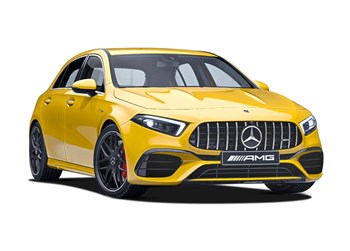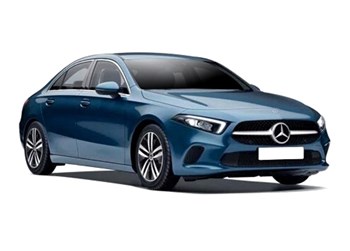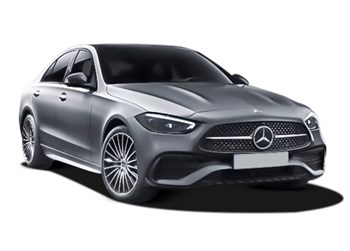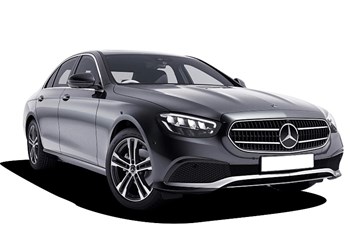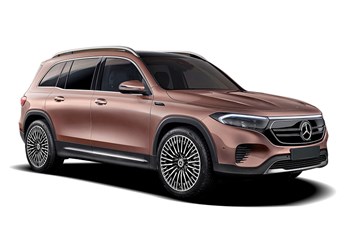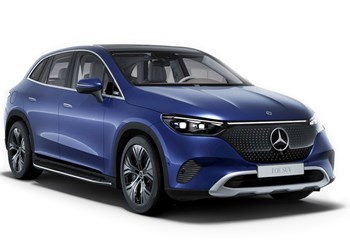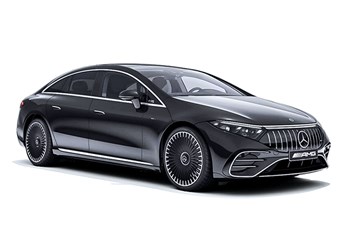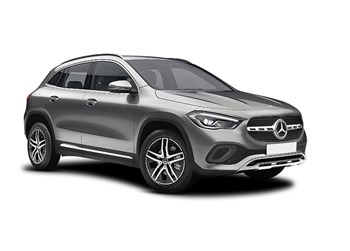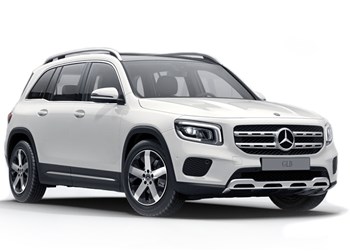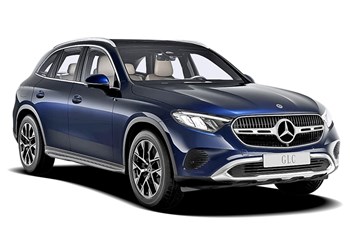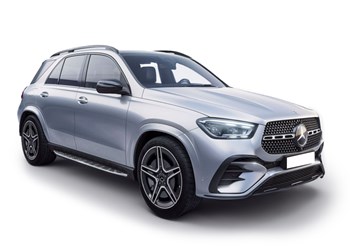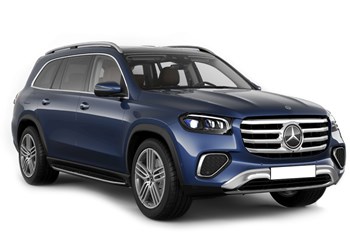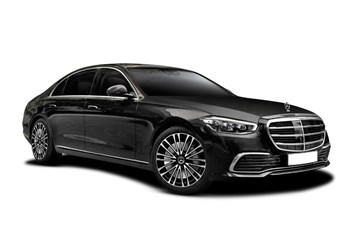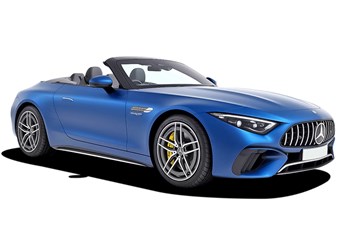Mercedes-Benz has adopted a top-down approach for its electric line-up in India. First came the luxury EVs like the EQC (now discontinued), EQS and EQE, followed by the 7-seater EQB. This strategy has paid dividends as they average three-digit monthly sales combined, which is commendable considering two out of the three EVs currently on sale wear seven-figure price tags.
Now, to cater to entry-level luxury EV buyers and increase its market share, the company has launched the EQA, an electric derivative of the GLA crossover. The EQA nameplate has been around in international markets since 2021 and even got a facelift last year. India gets the facelifted version in fully loaded 250+ form. We find out if the EQA has the potential to be the bestselling Mercedes EV in India.
Mercedes Benz EQA 250+ design
As mentioned, the EQA is based on the GLA, so its styling is swoopy rather than butch, and it looks more crossover than SUV. It wears a distinct Mercedes EV face, with its headlamps connected by an LED light bar. It gets blanked-off piano black grille reminiscent of the brand’s premium EVs. The star-studded grille gets an oversized three-pointed star logo in the centre commanding attention. It resembles the ICE version’s AMG-Line grille that's finished in chrome. Equally eye-catching are its 19-inch aero wheels. Carried forward from the ICE version are its squared wheel arches, muscular body lines and its coupe-like sloping roofline. A neat set of connected tail-lamps and a new bumper with chrome touches differentiate it from its ICE counterpart.

The EQA is as wide as the GLA and it shares the same wheelbase, too, although the EV is 21mm longer and 19mm taller. Despite packing in a battery pack beneath its cabin floor, ground clearance is about 137mm (laden), which feels sufficient. At no point does the EQA feel inadequate or incapable of tackling unusually large speed breakers.
Mercedes Benz EQA 250+ interiors, features
With its twin 10.25-inch screens, sporty steering and classy turbine-like air vents, the EQA’s cabin is familiar to its sibling and makes a strong impression. In line with other Mercedes EVs, the EQA sports copper-coloured highlights around the air vents. A dashboard fascia studded with a three-pointed star design is unique to the EQA, as are its part-artificial leather, part-fabric seats (made using recycled plastic bottles). Seat comfort though isn’t the EQA’s strong suit as its cushioning is firm and some may find lumbar support a bit excessive (even in its lowest setting).

There are plenty of modern niceties to keep the driver engaged. Its head-up display is quite detailed; its Burmester sound system will keep music-lovers entertained; and its touchscreen is slick and very easy to use. It supports wireless Android Auto and Apple CarPlay, and gets in-built Navigation with Augmented Reality. While using the latter, with help from its front camera, it displays a live feed of the road on the screen, with the road name, and the arrows get progressively larger as you approach a turn. Other features of interest include electric front seats with memory, dual-zone climate control, wireless charging, a panoramic sunroof and an electric tailgate. The Autonomous Emergency Braking, like in every other Mercedes offering, is simply too aggressive, and it brings the car to a grinding halt automatically if it senses an impending collision. For an otherwise well-equipped car, ventilated front seats have been skipped.

Coming to the rear, occupants won’t be comfortable on account of its low seating and high floor, which results in a knees-up seating position even when you have your feet stretched forward. Interestingly, the EQA gets a rear armrest while its ICE counterpart doesn’t, because the GLA’s subwoofer placement (beneath its rear seat) warrants a different seat design. The EQA’s boot is 340 litres, nearly 100 litres less than the GLA. However, there’s no spare tyre on the boot floor intruding into cargo space like in the GLA (you get a puncture repair kit), so you can get in a few bags; we managed four cabin bags.
Mercedes Benz EQA 250+ performance
Mercedes has opted for a single-motor (front-wheel drive) setup, which produces 190hp and 385Nm, drawing power from a 70.5kWh battery. Its headlining figures are 0-100kph in 8.9 seconds and a top speed of 160kph. These are modest, especially when compared to the 408hp Volvo XC40 Recharge or 313hp BMW iX1, which are much quicker sprinters, too. However, like all EVs, the motor’s instant response and its linear power delivery makes it feel peppy, and acceleration feels more than adequate to keep most drivers entertained.
It gets four drive modes – Comfort, Eco, Sport and Individual – that alter its pedal response, steering feel and ESP sensitivity. A peculiarity while using these drive modes is that when you switch from Comfort to Eco, the car automatically decelerates, and switching to Sport makes it scoot ahead and speed up, without a change in the pedal position. In Sport mode, the motor feels the most aggressive, and hard acceleration will induce a little wheelspin and torque steer (pulls in a particular direction).
What owners will appreciate is the EQA’s claimed range of 560km, which is more than the WLTP range figures of the Volvo XC40 Recharge and BMW iX1, which stand at 505km and 440km, respectively. While driving and filming the EQA in and around Jaipur city, we managed to extract an efficiency of around 4.9km/kWh, translating to a range of 350km. Of course, this number is likely to be much higher when driven in a more measured manner, with the car in Eco mode all throughout.
The suspension setup has a comfort bias, and there’s noticeable pitch and squat with changes in pace, and body roll during spirited cornering. The good news is that while it may not be an enthusiastic handler, it's great in the city; in low to medium speeds ride is really good, and potholes and ruts feel quite far away from you. It's only the sharp ones that will come through.

While braking, the pedal feel isn’t progressive, and the transition between friction brakes and motor (regenerative) braking is not smooth during medium to hard braking. There are three levels of regenerative braking – Normal, Strong and Maximum. However, these only bring the car to crawling speeds, so one-pedal driving isn’t possible. A convenience feature sorely missed – especially in traffic – is ‘Auto Hold’, where the car remains stationary (without the need to press the brake pedal) while in ‘D’, until the driver accelerates.
Mercedes Benz EQA 250+ verdict
We started this review with a question – does the EQA have what it takes to be the bestselling Mercedes EV? And the answer to that is an emphatic ‘yes’. Of course, the fact that it's also the most affordable would be a big factor, too. Sure, it might not look butch or accelerate as quickly as its rivals, and for the chauffeur-driven folk, its backseat experience is disappointing. But the self-driven folk will appreciate its compact size and plethora of features. And while its performance is adequate, its good range will give it an edge over rivals. Finally, at Rs 66 lakh (ex-showroom), it sits closer in price to the more powerful BMW iX1 (Rs 66.90 lakh) than the Volvo XC40 Recharge (Rs 55 lakh). However, the EQA is the most affordable EV to wear a three-pointed star on its nose, and for some, that alone could be reason enough to want one.
Also see:
Mercedes EQA 250+ video review
Mercedes EQA India launch on July 8
BMW 5 Series vs Mercedes E-Class: LWB dimensions comparison
- Images
- Videos

